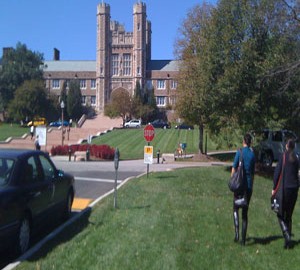Guiding Indian Americans to Elite College Admissions
Indian American parents place a great deal of value on the quality of their children’s education. That’s why it vexes them when Indian American students who have nearly perfect academic qualifications, as demonstrated by their GPA, class rank, SAT and SAT Subject Test scores, and AP grades, are rejected by Ivy League and other top-tier institutions.
There have been lawsuits and federal agency complaints filed by Indian Americans against several top universities regarding what they perceive as a quota, but these actions have failed. The consensus in the college admissions counseling field is that the admissions offices of elite colleges consider a wide range of factors as part of their holistic approach to selection. We agree and have no doubt that, even though they don’t admit all academically gifted Indian American students, elite colleges are not applying a quota on Indian Americans or other Asian Americans.
The high number of qualified applicants to top-tier colleges from the Indian American community reflects their innate abilities, hard work, and lofty ambitions. But the disproportionate volume of very well qualified Indian American applicants has the practical effect of working against them. It’s difficult to stand out in a crowd of academically strong applicants. It’s even more difficult to stand out among high-achieving applicants that share a common ethnicity. This is because, in order to achieve their goals in student diversity, elite schools tend to prefer the skier from Oslo, the ranch-hand from Montana, the championship debater from Maryland, and the Science Olympiad winner from Rochester. In short, they seek a variety of individuals so that they may all come together to form a dynamic mix. When this is achieved, students will learn more from a diverse student body than they would otherwise.
IvySelect has successfully applied a realistic approach to admissions consulting that entails working within the diversity-focused status quo. Because we’ve had substantial experience with Indian American students, we are particularly sensitive to the ramifications of ethnic stereotyping. We work hard to guide you in identifying, developing, and focusing attention on your special talents and abilities. It’s by strategically emphasizing your distinctive talents that you’ll succeed against the competition. As a result, we help you overcome the difficulties that Indian Americans face in gaining admission to the most highly competitive institutions in the United States.
Specifically, IvySelect advises you on proven ways to elevate your personal profile above the crowd. We make each institution’s search for diversity work for you and not against you. As a result, IvySelect has had a great deal of success in helping our Indian American students gain admission at highly selective schools including Harvard, Yale, Penn, Dartmouth, Brown, Princeton, Columbia, Cornell, Stanford, MIT, Cal Tech, Amherst, Williams, Chicago, Swarthmore, Pomona, Northwestern, Oxford – U.K., Johns Hopkins, Duke, Washington University, Rice, Georgetown, Emory, Bowdoin, Colgate, Hamilton, USC, Berkeley, UCLA, NYU, Wesleyan, Wellesley, Vassar, Barnard, Boston College, Notre Dame, Vanderbilt, Virginia, Michigan, Texas, North Carolina, Wisconsin, Wake Forest, Tulane, Boston University, Carnegie Mellon, Harvey Mudd, Rochester, and others.
It’s extremely difficult for anyone to get accepted by an Ivy League or a similarly elite university or college. It’s especially challenging for you as an Indian American due to your need to demonstrate your potential contribution to a school’s diversity quotient by means of factors other than your ethnic background. IvySelect, as a professional college admissions consulting firm, helps to shape a singular persona for you to help you stand out from the crowd. We make sure that this persona is emphasized in your applications, especially in essays and interviews.
Under our guidance, you become a three-dimensional figure to admissions officers. You’ll appeal to them not only for your academic excellence, but also for your passionate interests and the unique personal value that you’ll bring to their campus and community.




